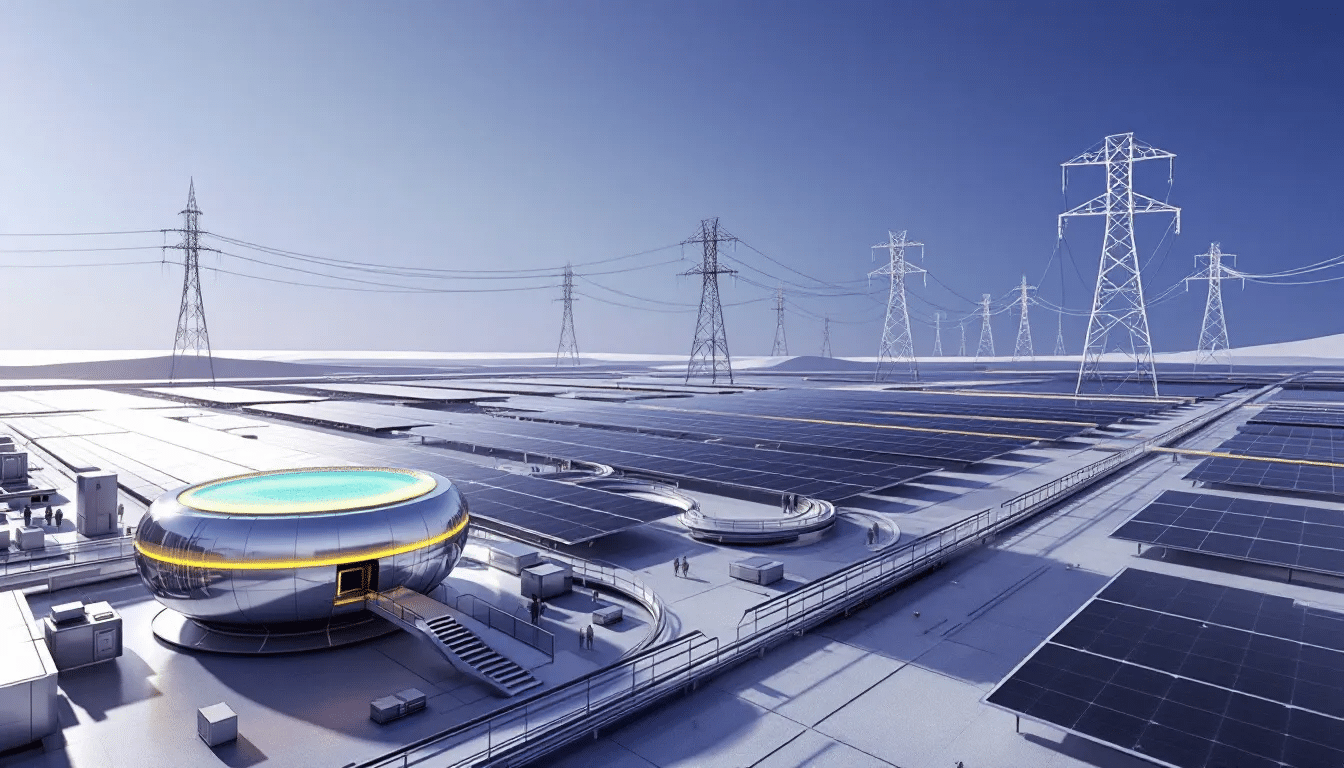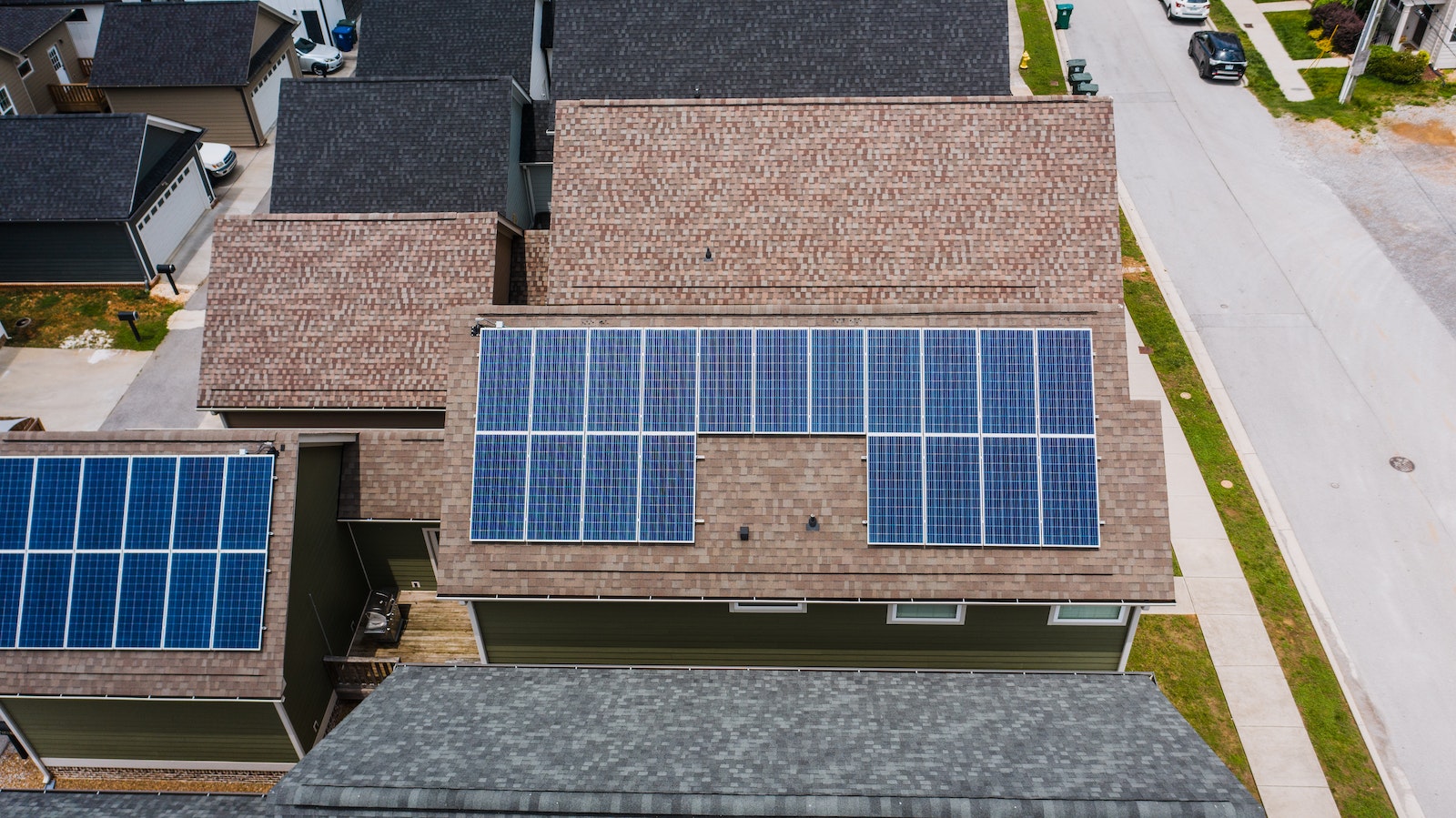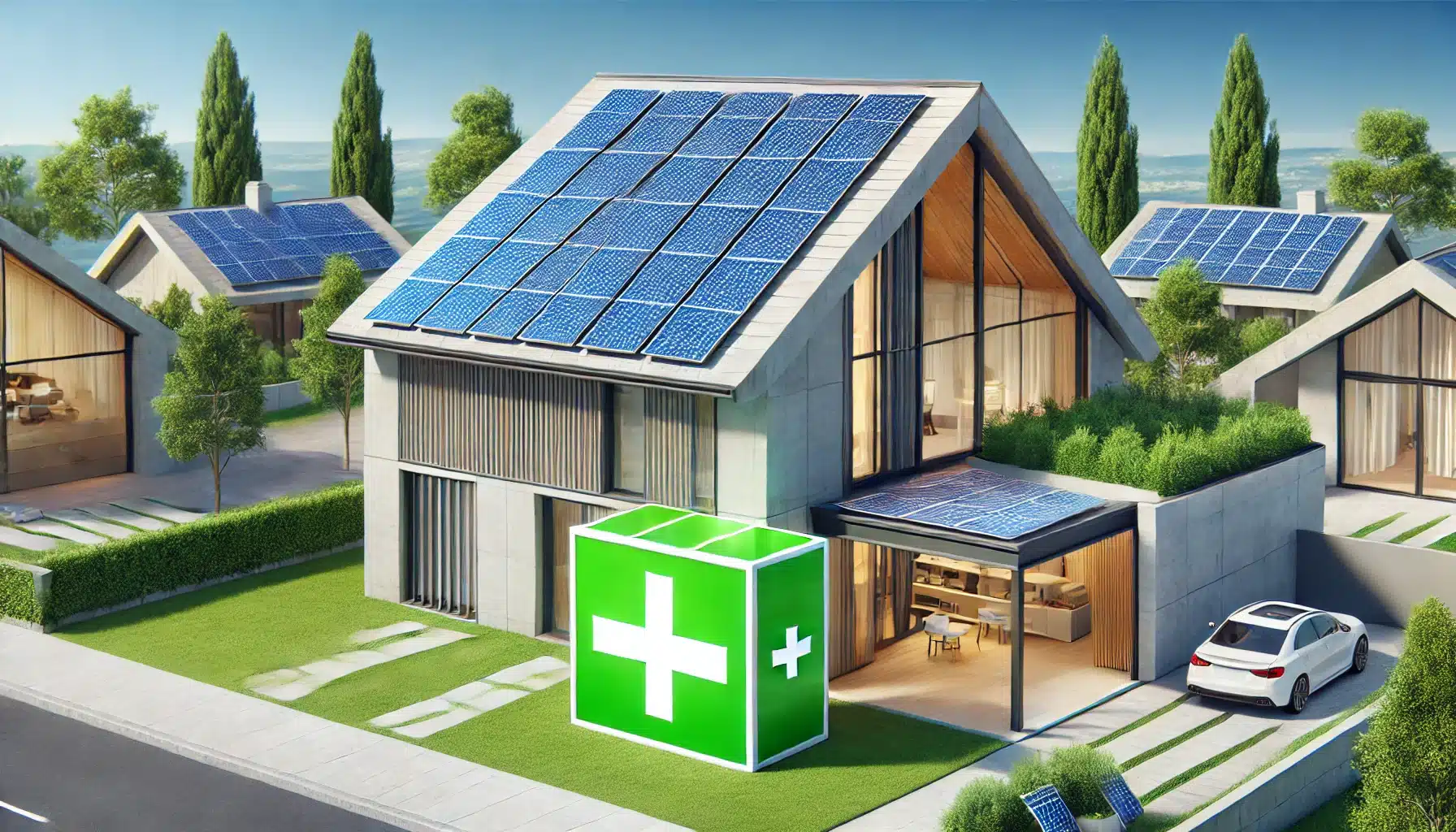Key Takeaways
- Industrial solar power systems provide significant financial savings and lower electricity costs for businesses, potentially reducing expenses by thousands annually.
- Adopting solar energy enhances environmental sustainability by decreasing reliance on fossil fuels, thus lowering carbon emissions and supporting climate goals.
- Financial incentives, such as the Federal Investment Tax Credit and local rebates, make investing in solar power more affordable and economically viable for businesses.
As businesses increasingly seek sustainable and cost-effective energy solutions, industrial solar power systems have emerged as a compelling option. These systems harness the power of the sun to generate clean, renewable energy, significantly reducing electricity costs and promoting environmental sustainability.
By integrating solar panels, inverters, and energy storage systems, businesses can achieve energy independence and reduce their carbon footprint, all while taking advantage of financial incentives like the Federal Investment Tax Credit.
This article explores the myriad benefits of industrial solar power systems, providing insights into their components, cost savings, and implementation strategies, empowering businesses to make informed decisions about transitioning to solar energy.
Understanding Industrial Solar Power Systems
Industrial solar power refers to the use of solar energy specifically for industrial purposes, encompassing large-scale applications such as factories, warehouses, and corporate facilities.
These systems are composed of various components, including solar panels, inverters, energy storage systems, electrical panels, and connections to the power grid. Each component plays a critical role in converting sunlight into usable electrical energy and ensuring the system’s overall efficiency and reliability.
Integrating these components allows businesses to leverage solar energy efficiently, reducing dependency on traditional energy sources. This section will delve deeper into each component, providing a thorough understanding of how they contribute to the overall functionality of industrial solar systems.
Photovoltaic Panels
Photovoltaic panels, commonly known as solar panels, are essential for converting sunlight into electrical energy. When sunlight energizes the silicon cells within the panels, it releases free electrons, generating direct current (DC) electricity.
The materials used in these panels, such as silicon, boron, and phosphorus, play crucial roles in enhancing their efficiency and electricity generation capacity. The intensity of sunlight directly influences the amount of electricity produced, making the positioning of the panels critical for optimal performance.
The National Renewable Energy Laboratory highlights that the efficiency of photovoltaic panels has significantly improved over the years, making them a reliable source of clean energy. Installing solar panels on commercial buildings not only reduces electricity bills but also contributes to a company’s green credentials, attracting environmentally conscious customers and investors.
Inverters
Inverters are pivotal in any solar panel system, converting the DC electricity generated by photovoltaic panels into AC electricity, which is suitable for powering industrial equipment. This conversion is crucial as most industrial processes and machinery operate on AC power.
Properly functioning inverters ensure that the electricity generated by the solar panels can be efficiently utilized across the facility, maximizing the system’s effectiveness.
Energy Storage Systems
Energy storage systems, such as lithium-ion and lead-acid batteries, are integral to the reliability of industrial solar systems. These systems store excess electricity generated during peak sunlight hours, ensuring a steady supply of power even during cloudy days or at night.
Balancing supply and demand, energy storage systems help businesses maintain operational continuity and reduce reliance on the power grid. This not only enhances energy independence but also leads to significant cost savings by mitigating the impact of peak electricity rates.
Advantages of Industrial Solar Power Systems
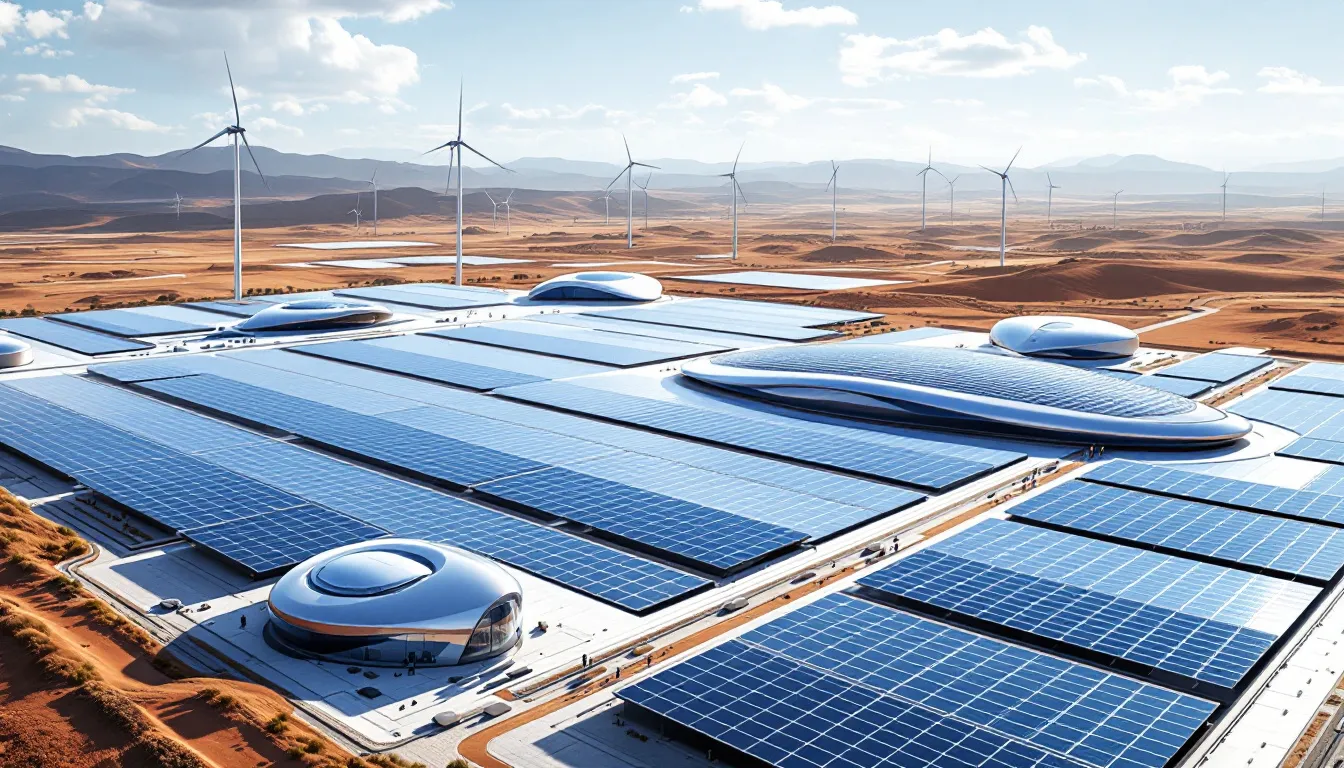
The benefits of industrial solar power systems are manifold, offering compelling reasons for businesses to make the switch. They not only provide substantial financial savings but also contribute positively to the environment and enhance energy security.
Reduced Energy Costs
One of the most significant advantages of adopting solar power is the reduction in energy costs. Businesses can significantly lower their electricity operating expenses, which can average around $7,800 annually.
For instance, Badger Meter’s rooftop solar system generates 11% of the energy needed for its headquarters and main production facility, leading to considerable savings on electricity bills. Similarly, Ashley Furniture’s distribution center in Illinois produces over 40% of its energy needs through solar, showcasing the potential for major cost reductions.
These examples illustrate how solar energy systems can transform a company’s financial landscape by cutting down on utility bills and providing a more predictable energy pricing model. By investing in solar power, businesses can reallocate savings into other critical areas, enhancing overall operational efficiency.
Environmental Impact
Switching to solar power has profound environmental benefits. By reducing reliance on fossil fuels, businesses can significantly lower their carbon footprint and contribute to global climate goals.
For example, Tyson Foods’ solar PV system is part of their broader initiative to cut greenhouse gas emissions by 30% by 2030, demonstrating a commitment to sustainability.
Adopting renewable energy sources like solar power is a crucial step in combating climate change and fostering a sustainable future.
Energy Independence
Achieving energy independence is another critical advantage of industrial solar power systems. By generating their own electricity, businesses can mitigate the risks associated with fluctuating energy prices and ensure a stable energy supply. This independence allows companies to have greater control over their energy resources, reducing vulnerability to external energy market dynamics.
Solar power systems provide a reliable and consistent energy source, enhancing operational stability and resilience in a solar energy system.
Financial Incentives and Tax Credits
Investing in industrial solar power systems and commercial solar energy systems is made even more attractive by the array of financial incentives and tax credits available. These mechanisms significantly reduce the upfront costs and improve the return on investment for businesses.
Federal Investment Tax Credit (ITC)
The Federal Investment Tax Credit (ITC) is a substantial financial incentive designed to promote solar energy investments. By taking advantage of the ITC, businesses can claim a tax credit worth 30% of the total solar system installation costs, provided the project meets certain labor requirements and begins construction before January 1, 2025.
This tax credit helps offset the initial investment, making solar projects more financially viable.
State and Local Incentives
In addition to federal incentives, many states and local governments offer additional financial incentives to encourage the adoption of solar energy. These can include tax credits, rebates, and production-based incentives, further reducing the upfront costs associated with installing solar panels.
These local incentives complement federal tax credits, making solar energy projects even more affordable for businesses.
Power Purchase Agreements (PPAs)
Power Purchase Agreements (PPAs) offer a practical financing solution for businesses looking to adopt solar energy without the burden of upfront capital costs. Under a PPA, a third-party provider installs and maintains the solar system, and the business agrees to purchase the electricity generated at a predetermined rate.
This arrangement reduces financial risk and improves cash flow, making it an attractive option for companies wanting to embrace renewable energy.
Case Studies of Successful Industrial Solar Projects
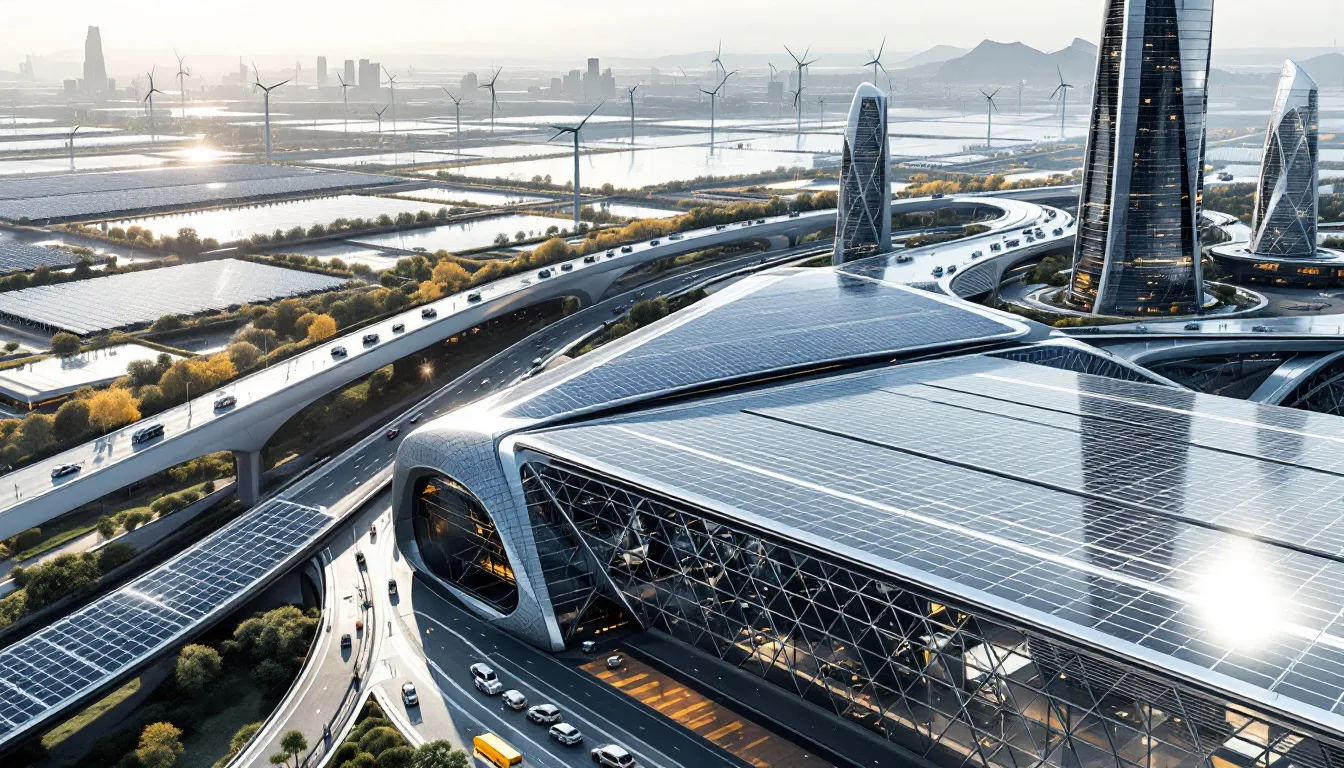
Real-world examples of successful solar projects provide valuable insights and inspiration for businesses considering the switch to solar power. These case studies highlight the tangible benefits and positive impacts of industrial solar systems.
Manufacturing Facilities
Manufacturing facilities are increasingly adopting industrial solar systems to reduce their energy costs and environmental footprint. For example, manufacturing plants can significantly lower their operational expenses and greenhouse gas emissions by harnessing solar energy.
This shift not only enhances sustainability practices but also leads to a greener production process, improving corporate reputation and customer loyalty.
Agricultural Operations
Agricultural operations, such as LNS Pork, benefit immensely from solar power. LNS Pork’s ground-mounted solar PV system generates over 100% of its energy requirements, effectively eliminating electricity costs and allowing for reinvestment into other aspects of the business.
This example underscores the potential for solar energy to drive operational efficiency and sustainability in the agricultural sector.
Warehouses and Distribution Centers
Warehouses and distribution centers, like Ashley Furniture’s distribution center in Illinois, are leveraging solar energy to meet a significant portion of their energy needs. Ashley Furniture’s solar installation supplies over 40% of the center’s energy requirements, resulting in substantial cost savings and environmental benefits.
This case study highlights how solar energy can enhance sustainability and operational efficiency in large utility scale solar commercial solar projects.
Steps to Implementing an Industrial Solar Power System
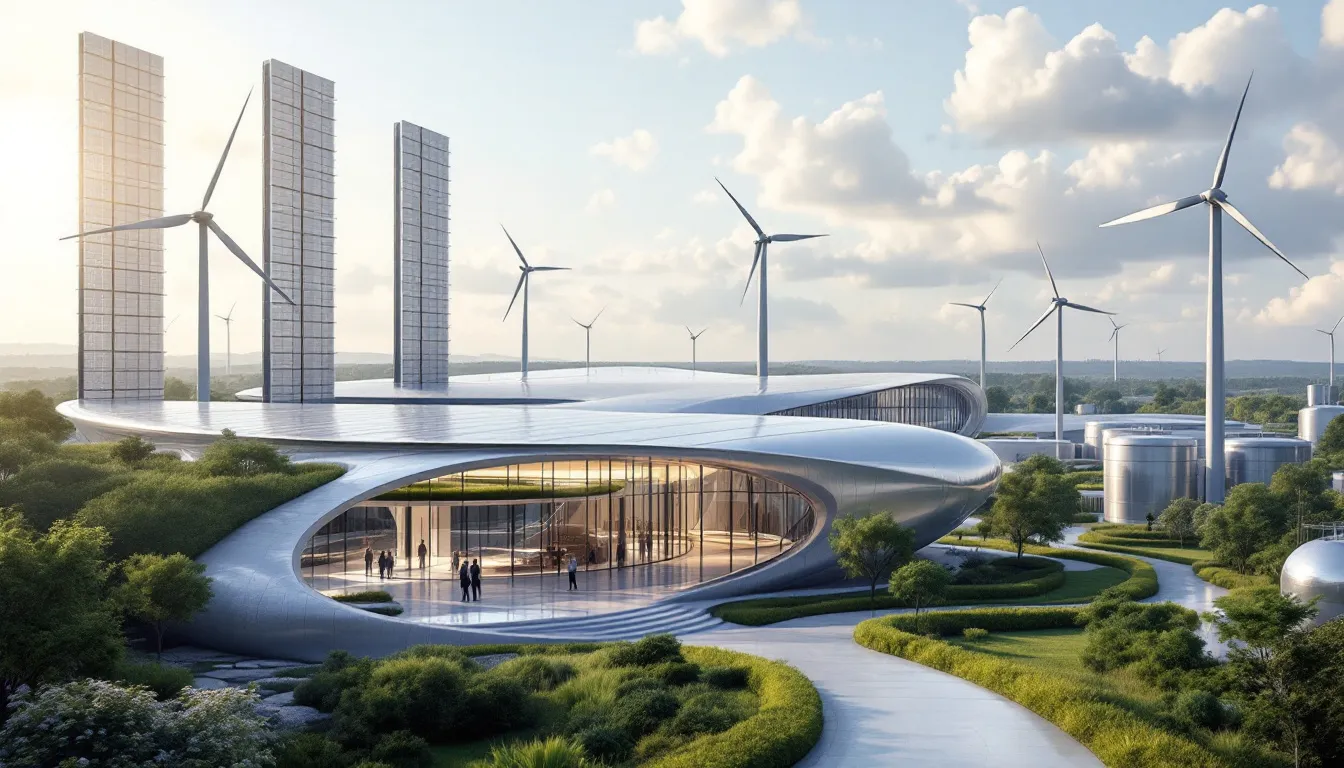
Implementing an industrial solar power system involves several key steps, from the initial assessment to ongoing maintenance. Understanding these steps ensures a successful and efficient transition to solar energy.
Initial Assessment and Feasibility Study
The initial assessment and feasibility study are crucial for determining the viability of a solar power installation. This process involves evaluating the site location, utility proximity, and local laws to ensure the project is feasible. Solar installers can assist with this assessment, providing insights into available incentives and performing a financial feasibility analysis to ensure the project’s success.
Choosing a Solar Contractor
Selecting a qualified solar contractor is essential for the success of the installation. A reliable contractor ensures compliance with local regulations and provides ongoing maintenance and repairs to ensure the system’s longevity.
Checking online reviews, testimonials, and comparing quotes from different solar companies helps businesses make an informed decision.
Installation and Maintenance
Proper installation and ongoing maintenance are vital for the optimal performance and longevity of the solar system. Regular maintenance ensures the system operates at peak efficiency, addressing any potential issues promptly.
This ongoing care is crucial for maximizing the return on investment and ensuring the system’s reliability over its lifespan.
Contact Sun Source Energy for Your Industrial Solar Needs

Ready to make the switch to solar power?
Contact Sun Source Energy, headquartered in Las Vegas, Nevada, for comprehensive solar solutions tailored to your business needs. The solar energy industries association can provide additional resources and support for your transition.
Whether you’re looking to install residential or commercial solar systems, Sun Source Energy offers a free consultation and quote to get you started.
Call 800-674-9750 or keep reading our website to learn more and take the first step towards a sustainable future.
Summary
In conclusion, industrial solar power systems offer numerous benefits, including reduced energy costs, environmental impact, and energy independence. With various financial incentives and successful case studies to draw inspiration from, now is the perfect time to explore solar energy for your business.
Contact Sun Source Energy today to begin your journey towards a greener and more sustainable future.
Frequently Asked Questions
What are the main components of industrial solar power systems?
The main components of industrial solar power systems are solar panels, inverters, energy storage systems, electrical panels, and grid connections. These elements work together to ensure efficient energy production and management.
How do photovoltaic panels work?
Photovoltaic panels convert sunlight into direct current (DC) electricity. This electricity is then transformed into alternating current (AC) by inverters, making it suitable for industrial use.
What financial incentives are available for industrial solar projects?
Industrial solar projects can benefit from the Federal Investment Tax Credit (ITC), various state and local incentives, and Power Purchase Agreements (PPAs). These financial mechanisms can significantly enhance the feasibility and attractiveness of solar investments.
Can solar power systems help reduce energy costs for businesses?
Absolutely, solar power systems can greatly reduce energy costs for businesses by decreasing electricity bills and offering stable energy pricing. This not only enhances financial predictability but also promotes sustainability.
How can I get started with installing an industrial solar power system?
To get started with installing an industrial solar power system, conduct a feasibility study and choose a qualified solar contractor like Sun Source Energy to ensure proper installation and ongoing maintenance for optimal performance. This approach will set a strong foundation for your solar project.


